Show Notes
In this short recovery snippet, we discuss the options and seek to understand the reasons why different approaches fail so that we can decide whether to persist or not.
Timestamps
| Introduction | 0:00:00 |
| What are the options when you hit a plateau? | 0:01:24 |
| Understanding external reasons why approaches fail. | 0:01:59 |
| Understanding internal reasons why approaches fail. | 0:05:31 |
| Should you make a change? | 0:08:35 |
| Summary and additional thoughts | 0:11:34 |
Links
Here is a link to the ANS REWIRE program.
Transcript
What do you do if you have hit a plateau with the program you are currently using, or with the coach that is assisting you? The obvious answers are that you stick with what you are doing, or that you make a change – but both can be a big mistake - so it needs some careful consideration!
So let’s explore this today – you may be surprised at my answers and some of the experiences I will share. But if you have listened to many of the interviews that I do with people that I have recovered, you will have seen evidence of what I am about to tell you numerous times.
So, something people find quite surprising is that I share recovery stories with people that have recovered in all manner of ways, not just through the ANS REWIRE program. This includes people that have recovered with other recovery programs than my own – in fact, I have done so since day one.
So why is that?
Well, obviously cfsunravelled.com was always about positive advocacy, about helping people realise that recovery from Fibromyalgia, ME/CFS, POTS and related syndromes is ABSOLUTELY possible.
When I published my own recovery program in 2016 – ANS REWIRE, I still shared about other recovery stories – so why do I do that?
Well, quite simply, ANS REWIRE, may not be the best program for you. That’s because there is no program, coach or approach out there, that is the best.
You see, instead it is about finding the best program for you! Or more accurately, the best program for you now.
Now, ANS REWIRE is an education program that shares a multi-lateral recovery approach with focus on normalising ANS function whilst addressing secondary dysfunctions to help people make recovery progress.
If you have listened to recovery interviews on cfsunravelled.com, you may have heard how people tried mind-body programs, even multiple programs and then enrolled in ANS REWIRE and recovered successfully.
So why did that happen?
Well, in many cases it was that there was something missing from their recovery approach – for instance, some of the core physical strategies in the program that reduce triggering of the nervous system – some of the education that helps them engage with a health care practitioner to resolve a secondary dysfunction or triggering dysfunction – or sometimes it was a having more flexible approach around the brain-training approach, like not having to visualise something – or something like that.
But, given that the ANS REWIRE program is very comprehensive and offers additional strategies to a brain-training program or another approach, you may be surprised to hear me say that it goes the other way also!
Whaaaat?
The reason is that for some people, less is more! This is especially the case if they place excessive pressure on themselves and don’t have a gentle compassionate approach to their efforts. What less does is give more effort, more focus, which is essential to achieving neuroplasticity.
Here is another reason why I have seen people fail with one program and then do well with ANS REWIRE – they simply didn’t like the approach, or the way it was presented. Or they found the techniques annoying or uncomfortable.
But there can be other reasons also!
Just before I go into that, please just take a moment to give us a thumbs up here to try and make this video reach as many folk as possible. And give me some feedback, leave a comment below and a share – that would be really greatly appreciated, just to let me know these efforts are worthwhile.
OK, so, what’s the other reason?
Well, it’s that we need to be ready to do what has to be done.
We often need the 3 Cs
You see, we need to accumulate enough evidence to be convinced. Once you are convinced, it’s about building conviction to really commit to doing what has to be done. And sometimes, we need to be just a little bit more well so that we are capable to do what needs to be done.
I usually suggest that people do the ANS REWIRE program multiple times during their recovery process, and they tell me how they learn things they didn’t realise was in the program previously. And this is because there is a different focus as our symptoms and recovery evolve and our engagement with life changes.
Here is another reason why making a change can be helpful – but remember what I said, it can also be detrimental to your recovery, so more about that in a moment.
Now often we need to hear things differently. In ANS REWIRE, I often approach something from different angles. I say it one way, then I say it another way. And that is especially important where those subtle distinctions, or apparent contradictions exist in the recovery process.
So not only do the lessons here apply to working with a program, but also to working with a coach.
I remember once, this girl that I was coaching, she was stuck. And one of the reasons was that she wasn’t addressing some of the severe issues in her life that were causing her distress. When I encouraged her to address these, she wouldn’t budge – she wasn’t ready to face these things. She wasn’t open to the possibility of doing things differently.
Because she wasn’t ready to change her external environment, I encouraged her to seek to change her internal environment to improve her healing environment. And then hopefully she could come back to face this problem the way it needs to be faced.
Well, she didn’t make progress and eventually she went onto another coach. This coach gave her some advice that led to her breakthrough and her recovery took off from there.
Guess what the advice was from the other coach! That was to stop trying to cope with the problem and instead to address the problem! That’s right, it was the very same advice that I gave her and she rejected!
So this shows us two things:
- We have to be ready to hear the advice and
- Sometimes hearing it again from another person, phrased differently, we finally get it.
So here is the big question if you are stuck or not progressing. Should you make a change?
Well, it depends.
I have had many emails from people who say to me that they just found my program, but they just started a different program. And they tell me that they really prefer my program and ask if they should switch.
My answer is usually no.
Because the key thing is to give the existing program or approach 100%.
Just because you haven’t got results yet, that may not be the problem – it may be that it’s too early or you may not even have started to engage deeply yet.
Making an early switch gets you into that ‘this will fix me’ mentality – instead you focussing on what YOU can do – giving whatever resources you have the best chance to succeed. Then, if you really do end up not progressing, or if your progress ends up stalling, you still have another option to explore.
But it doesn’t mean you should just endlessly keep going with a program, approach or coach.
If you have truly given it your best, and been with it a long time, then injecting a fresh perspective and some fresh enthusiasm and hope into your recovery approach, this could be really key.
So don’t become married to a solution! Don’t be married to a program or a coach, including me.
This isn’t about loyalty to your coach or liking the program or treatment or whatever – it’s really just ensuring that you make the progress – it’s all about your health.
If you make a switch, it doesn’t mean that the existing program that you were doing beforehand wasn’t any good or that you didn’t appreciate the support that you received from a coach if you were working with a coach. It simply means it’s time to try something new.
This applies for programs, recovery coaches, even health care practitioners. Whilst there is value in an relationship that is built up and there is a history and a knowledge, there is also value in a fresh approach and sometimes that’s what’s needed.
And you know what – it’s not abandoning anything. You can come back to the other program, coach or health care practitioner down the track.
Remember, this isn’t personal – this is about the number one thing that matters here – and that is your recovery!
But if you are dealing with a relapse, the question can become a bit more complicated on whether to go back to the previously successful approach, more about that in another video.
So in summary – yes, a switch can be a really wonderful way of gaining new momentum and insights for your recovery – don’t shy away from it, but don’t be married to your existing approach.
If things are really stale, you are not engaging, you are not progressing – then trying something new, it can help, even if it covers the same ground but is presented differently from a fresh face.
But be mindful of chasing easy solutions – make sure that you have absolutely done your best with your current approach and given it enough time to produce results.
The ANS REWIRE approach is actually very much about persisting with the program and if you get stuck, we simply seek to add additional strategies which may be external or involve other health care practitioners. If you think it’s time to learn more about the program, then check out the 4 free intro lessons and see if it’s the right step for you!
The key to continuing to progress with recovery is really seeking to understand why you are not progressing.
When there are obvious roadblocks, I actually tell people to stop engaging with the program, address these issues and then come back and engage strongly with the program, because engaging with it when it can’t work due to another factor will simply cause you to lose hope and make the approach stale.
So, what do you think? Have you found a fresh perspective helpful? Have you found listening to a program a second time gives you more insights? Have you perhaps jumped too early before and found yourself in the same position again?
I hope you like the background today and some of my friends here. I would appreciate a like and if you can share this with others and a comment below would be great.
Remember to be kind with yourself, be persistent and stay practical with your recovery approach.
Other Resources
CFS Unravelled is the book that started it all, outlining the explanation for the pathogenesis of ME/CFS, Fibromyalgia, POTS, MCS and related syndromes and explaining how recovery is possible.
All my email subscribers receive additional FREE resources like my book Discover Hope. So consider subscribing and reading the book to rediscover hope.
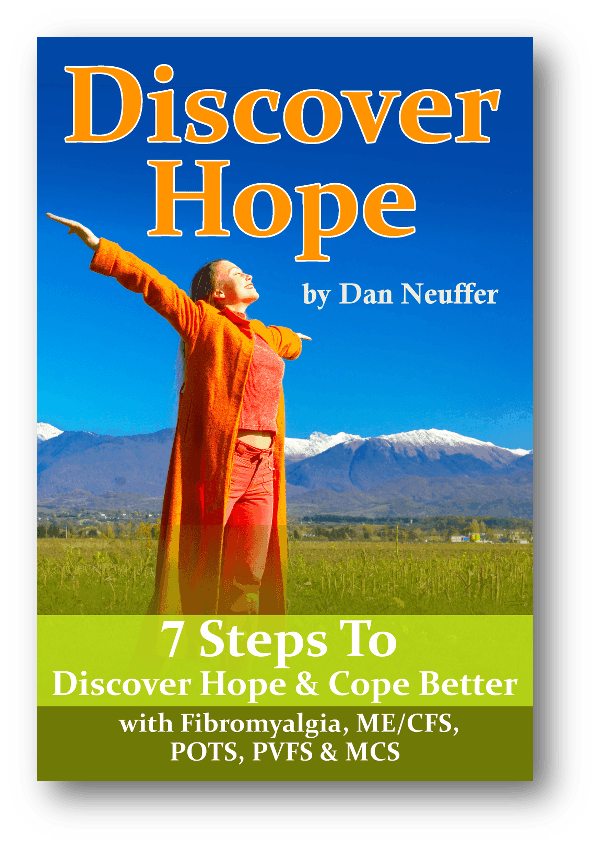
If you would like to learn more about the ANS REWIRE program, check out the 4 free intro lessons or visit the ANS REWIRE website.
Check out some other recent episodes
You can see the full list of episodes HERE.

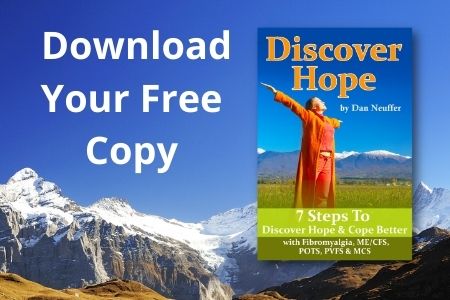
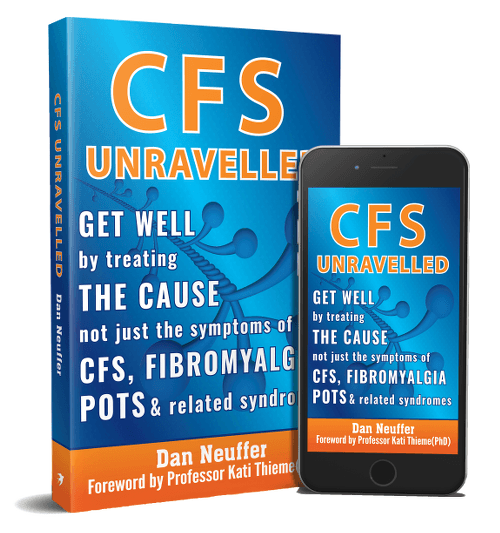
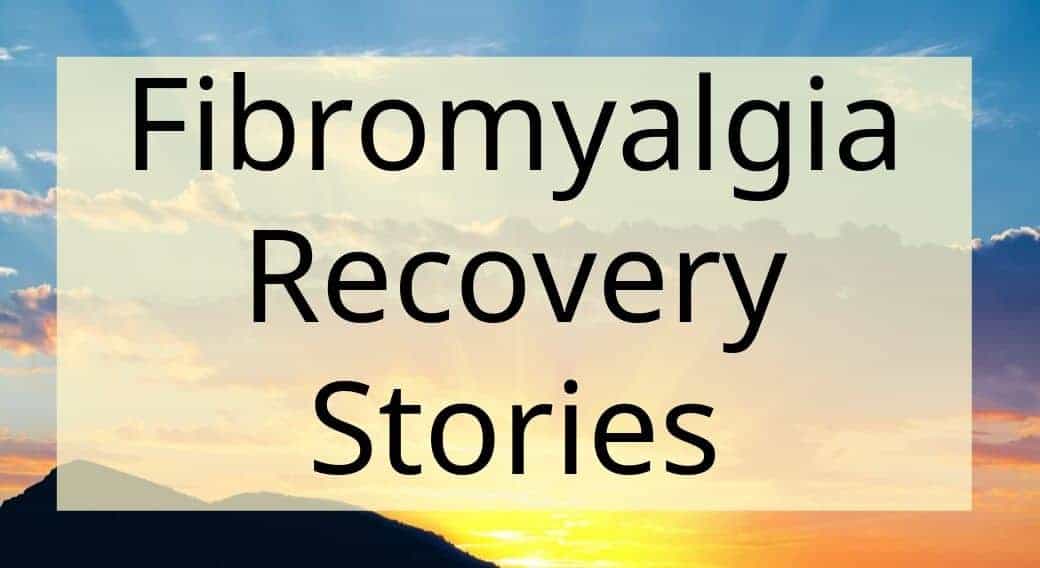
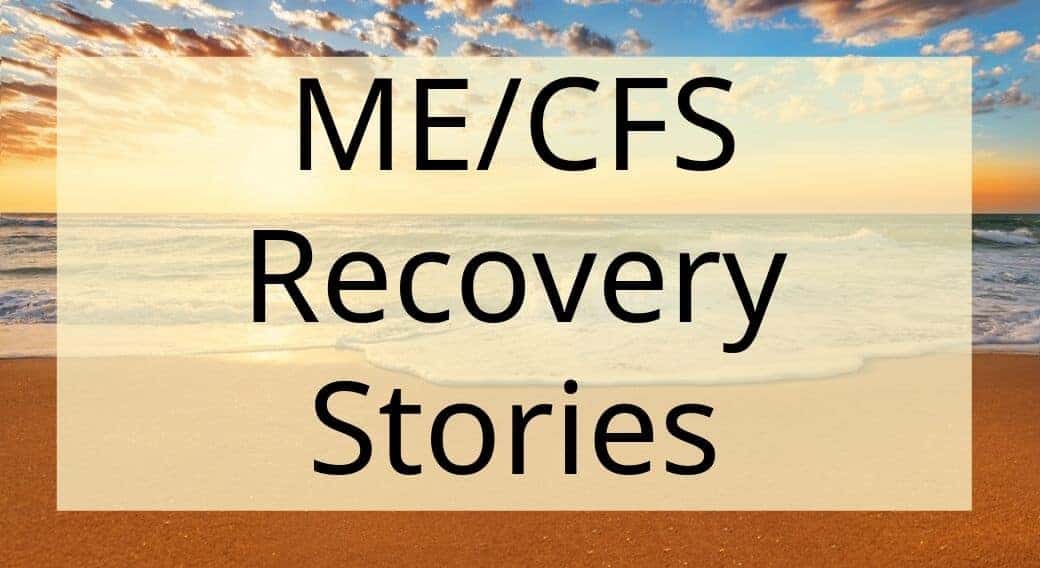
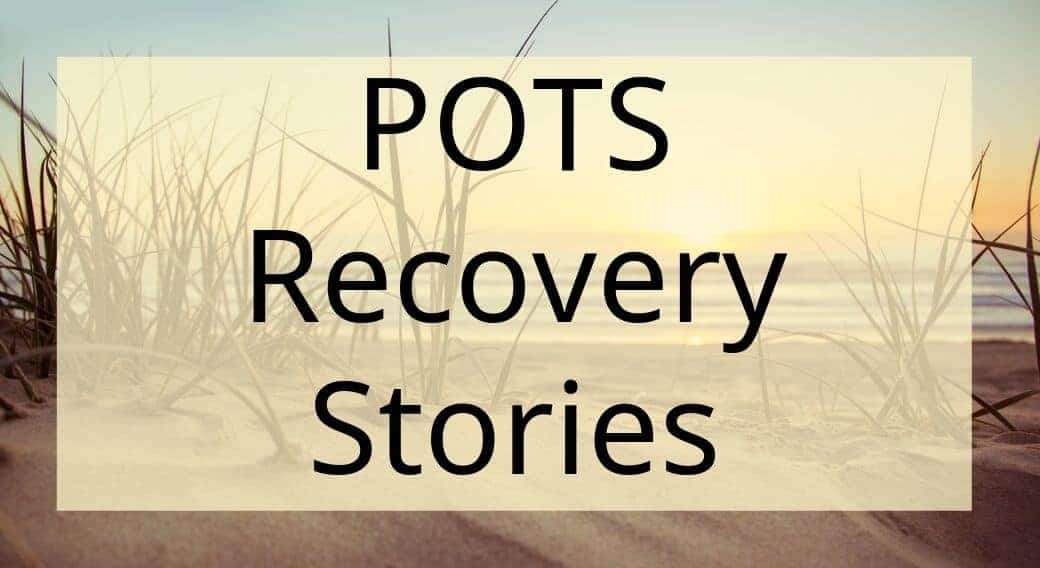
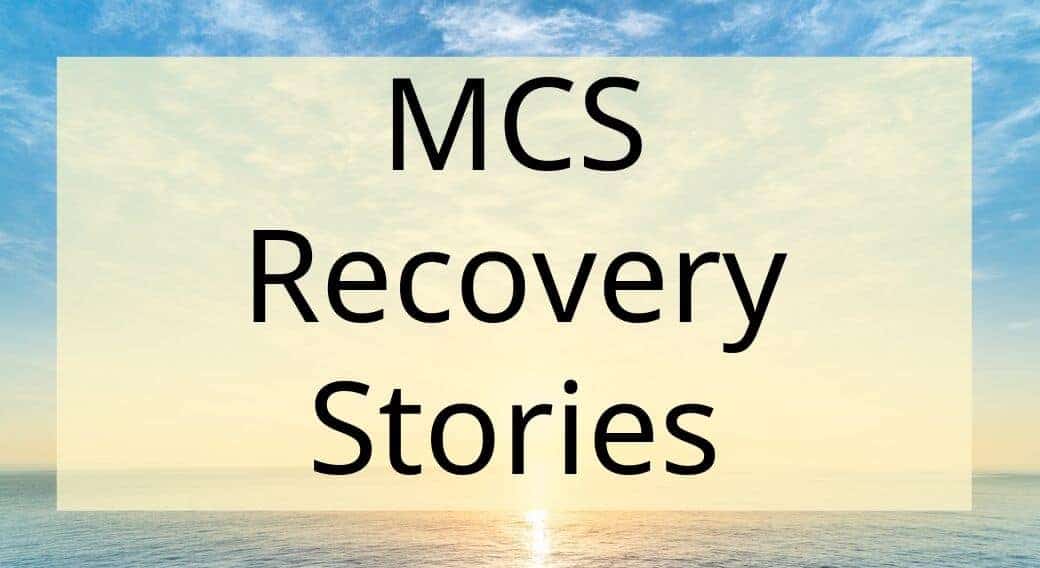

That is why I love your work, you are so ethical to suggest what helps people, not what might make you more money. A great post and I really respect that you have always encouraged people to share what they learn from programs other than your own, it is not about insisting your way is the only way. I think the advice here is very good. There is so much we can learn from reflecting on our own recovery journey with a preparedness to try something different within the existing program, that is where the learning comes that can build… Read more »
Thanks for the feedback Heather.
I have just changed my program. Thank you for going through the questions to think about in staying with or changing. It has helped me make sense of what I’ve been doing!
Glad it supported you.
Thanks Dan, yes that’s useful advice to have. (I can’t find the ‘like’ button on this site so I’ll post here instead). At this stage of the program, I always feel excited when a new video appears. (Tho I remember that when I first started the program, the number of videos seemed a bit daunting).
Hi Sally
Yes, we just have to take one video at a time and build our engagement gradually.
You can like on YouTube if you have a google account: https://www.youtube.com/watch?v=a0kVfDTyI6o&feature=emb_imp_woyt
Love this talk, it’s come at the right time for me when sometimes you feel like a kid in a lolly shop ?
You show such respect for the process rather than for patient recruitment – it definitely builds confidence. I am one of those not making much progress in another program and I will try not to jump ship before I have fully exhausted the effort. Your intellect however makes your program very appealing.
Hi Mishka,
Thanks for your feedback.
Yes it’s never easy knowing when to make a change – have we given our best effort long enough, or are we flogging a dead horse!?
Use your gut instinct – hopefully things start improving in the next couple of months.